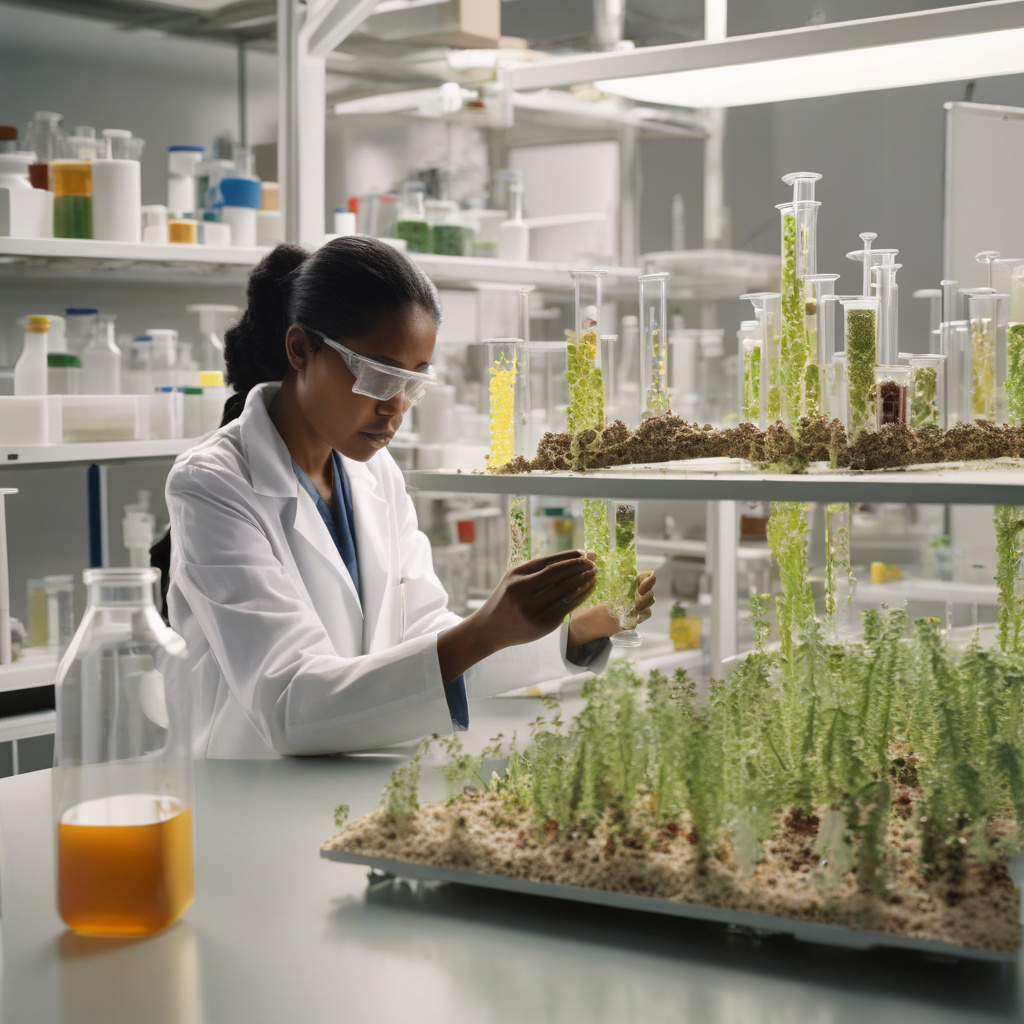Turning Crops and Farm Waste into Recyclable Bioplastics: A Breakthrough in Sustainability
Plastic products frequently pile up in landfills or spill into natural habitats where they occupy space indefinitely, posing a severe threat to the environment. The urgency to find sustainable alternatives to traditional plastics has led researchers to explore innovative solutions. Recently, a team of US researchers has made a significant breakthrough by engineering enzymes to create recyclable bioplastics from crops and farm waste.
Bioplastics, derived from renewable biomass sources such as plants, offer a promising eco-friendly alternative to conventional plastics that are derived from fossil fuels. However, the production of bioplastics often competes with food production, raising concerns about food security and land use. This is where the novel approach developed by US researchers stands out.
By harnessing the power of enzymes, biological catalysts that accelerate chemical reactions, the researchers have devised a method to efficiently convert agricultural residues and crops into valuable bioplastics. This innovative process not only reduces the reliance on food crops for bioplastic production but also transforms farm waste into a valuable resource.
The engineered enzymes play a crucial role in breaking down the complex carbohydrates present in crops and agricultural residues into simpler molecules that can be further processed into bioplastics. This sustainable approach not only addresses the pressing issue of plastic pollution but also offers a practical solution for managing agricultural waste, thereby promoting a circular economy.
Moreover, the recyclable nature of these bioplastics adds another layer of environmental benefit. Traditional plastics often end up in landfills, where they can take hundreds of years to decompose, releasing harmful chemicals into the environment. In contrast, recyclable bioplastics derived from crops and farm waste can be broken down and repurposed multiple times, reducing the accumulation of plastic waste and its detrimental impact on ecosystems.
The potential applications of these recyclable bioplastics are vast, ranging from packaging materials to agricultural films and beyond. By utilizing resources that would otherwise go to waste, this innovative approach not only offers a sustainable alternative to traditional plastics but also opens up new possibilities for reducing our carbon footprint and promoting environmental stewardship.
As the demand for eco-friendly solutions continues to grow, the development of recyclable bioplastics from crops and farm waste represents a significant step towards a more sustainable future. By combining cutting-edge research with a commitment to environmental conservation, the US researchers have paved the way for a greener, more circular economy that harnesses the power of nature to address the challenges of plastic pollution.
In conclusion, the engineering of enzymes to create recyclable bioplastics from crops and farm waste marks a groundbreaking advancement in the field of sustainable materials. By turning agricultural residues into valuable resources and offering a viable alternative to traditional plastics, this innovative approach has the potential to revolutionize the way we think about plastic production and waste management. It underscores the importance of innovation in driving positive change towards a more sustainable and environmentally conscious future.
sustainability, bioplastics, recycling, US researchers, environmental innovation












